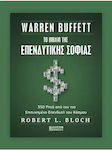Selected Store
Stock 2 pieces
Skroutz Buyers Protection
Set the delivery location to see products according to your choice.
 AustriaEnglish
AustriaEnglish BelgiumEnglish
BelgiumEnglish BulgariaБългарски
BulgariaБългарски CroatiaEnglish
CroatiaEnglish CyprusΕλληνικά
CyprusΕλληνικά CzechiaEnglish
CzechiaEnglish EstoniaEnglish
EstoniaEnglish FinlandEnglish
FinlandEnglish FranceEnglish
FranceEnglish GermanyDeutsch
GermanyDeutsch GreeceΕλληνικά
GreeceΕλληνικά HungaryEnglish
HungaryEnglish IrelandEnglish
IrelandEnglish ItalyEnglish
ItalyEnglish LatviaEnglish
LatviaEnglish LithuaniaEnglish
LithuaniaEnglish LuxembourgEnglish
LuxembourgEnglish MaltaEnglish
MaltaEnglish NetherlandsEnglish
NetherlandsEnglish PolandEnglish
PolandEnglish PortugalEnglish
PortugalEnglish RomaniaRomână
RomaniaRomână SlovakiaEnglish
SlovakiaEnglish SloveniaEnglish
SloveniaEnglish SpainEnglish
SpainEnglish SwedenEnglish
SwedenEnglish
© 20[0-9]{2} Skroutz SA All Rights and Lefts reserved. FAQ | Terms of use | Privacy Policy | Cookie Policy

Selected Store
Stock 2 pieces
Skroutz Buyers Protection










Finance Books

Finance Books
Prices are calculated for:Luxembourg, Other Payment Options
An impressive and captivating book that answers the question that has puzzled experts for centuries: "Why are some nations rich and others poor, why do prosperity and poverty, health and diseases, nourishment and famines divide nations?"
Is it due to culture, climate, geography? Or perhaps ignorance of what the correct policies are?
The answer is "no". None of these factors are decisive or fatal. Otherwise, how can the fact that Botswana is one of the fastest-growing countries in the world be explained, while other African nations, such as Zimbabwe, Congo, and Sierra Leone, are mired in poverty and violence?
Daron Acemoglu and James Robinson argue that political and economic institutions form the basis for economic success or failure.
Based on fifteen years of original research, Acemoglu and Robinson present impressive historical evidence from the Roman Empire, the Mayan city-states, medieval Venice, the Soviet Union, Latin America, England, Europe, the United States, and Africa, in order to establish a new theory of political economy.
A fascinating book that answers questions such as:
- China has created an authoritarian mechanism for economic growth. Will its economy continue to grow at high rates, resulting in China surpassing the West?
- Are the good days of the United States numbered? Does the virtuous cycle in which the elites increased the power of the US collide with a vicious cycle that will lead to the enrichment and empowerment of a small minority?
- What is the most effective way to help billions of people escape the mire of poverty? More humanitarian aid from the wealthy nations of the West? Or learning from Acemoglu and Robinson's pioneering ideas on the interaction between political and economic institutions?
Specifications are collected from official manufacturer websites. Please verify the specifications before proceeding with your final purchase. If you notice any problem you can report it here.
A real masterpiece book!
A book that has special significance, especially for us Greeks. As the creation of a well-governed state that achieves the prosperity and development (not just material) of its citizens has been the ultimate goal.
Whether this desire will be fulfilled at some point and how, depends on the institutions, their structure, and how they are ultimately created and manifested in a society. All of this is made understandable to a great extent through the enjoyable reading of this book.
A very nice short video that explains the importance of institutions in the economic success of nations is the following (from the marginal revolution university):
https://youtu.be/u5P8AZRBLac
But some good introductory books on the subject are the following:
*The excellent little booklet by Aristidis Chatzis: Institutions from Papadopoulos publications
1. Institutions, institutional change, and economic performance by Douglas North
2. Development as Freedom by Amartya Sen
3. The end of poverty by Jeffrey Sachs...
I have reached the halfway point of the book and I am struggling to finish it. The book contains too many details about historical events and figures. I am not a historian or an anthropologist. I am interested in understanding what leads a superpower to decline; why did the British Empire collapse? Why are the USA starting to lose ground while China and India are rising?
From the first 250 pages, what the authors want to say is the following:
"The difference between prosperity and poverty is not due to natural resources, cultural differences, or random coincidences, but to the institutions and political decisions made in each country. If you share the pie with more people, then you give them incentive and the pie grows."
From a 20-minute conversation I had with chatgpt, I learned much more than reading half of the book.
I will come back once I finish it.
The book has excellent writing and a nice flow. It is easy to read and the pages fly by. It provides a lot of information and helps you understand that what makes societies prosper is the political conditions, essentially meaning THE PEOPLE THEMSELVES. We are responsible for our own happiness or poverty. Food for thought. I have already ordered the second book from the same group of authors.
Excellent book.. I believe it is the best way for everyone to understand, without having any specific economic knowledge, the functioning of the economy and development or slowdown in combination with the human factor and institutions.. In post-memorandum Greece, it could be taught in schools
Verified purchase
Excellent book, I highly recommend it
Verified purchase
Quite useful in understanding well-being
Verified purchase
Excellent book, worth reading
Verified purchase
Verified purchase